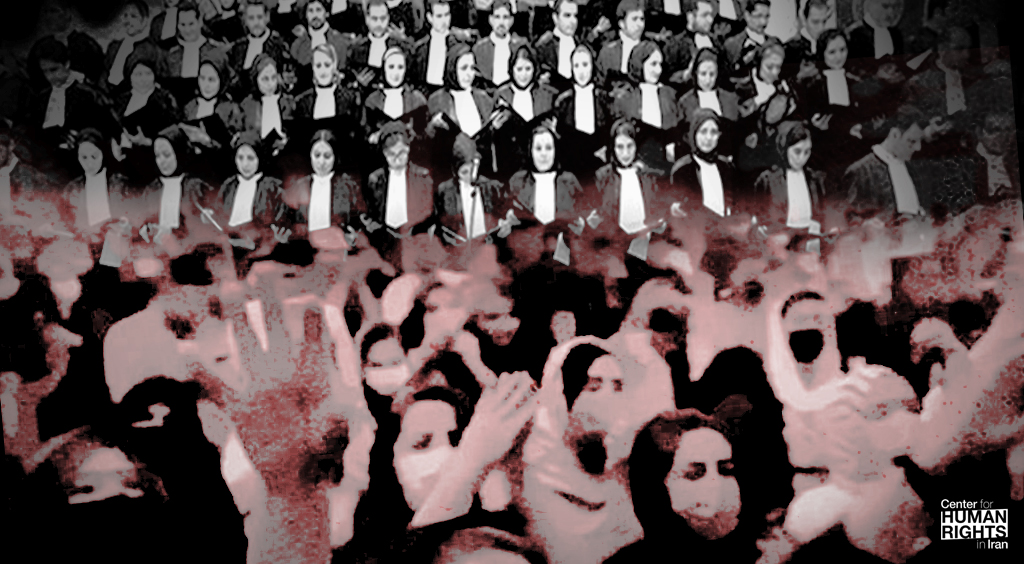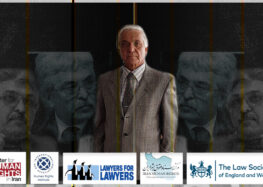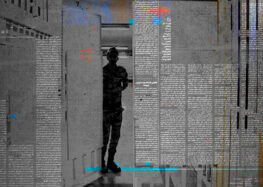Prominent Iranian Human Rights Lawyers’ Criticize Islamic Republic in Joint Statement
 In a joint statement obtained by the Center for Human Rights in Iran (CHRI) and translated into English below, 40 Iranian human rights lawyers from inside and outside the country have expressed strong support for Iran’s growing, anti-state movement, arguing that the “Iranian people’s uprising is for the restoration of the rule of law and to reach this goal “the legal community can be a pivotal foundation for historic changes leading to a national house of justice to not only bring back the rule of law and order, but also to allow anyone to seek justice…” Read the lawyers’ complete statement statement below.
In a joint statement obtained by the Center for Human Rights in Iran (CHRI) and translated into English below, 40 Iranian human rights lawyers from inside and outside the country have expressed strong support for Iran’s growing, anti-state movement, arguing that the “Iranian people’s uprising is for the restoration of the rule of law and to reach this goal “the legal community can be a pivotal foundation for historic changes leading to a national house of justice to not only bring back the rule of law and order, but also to allow anyone to seek justice…” Read the lawyers’ complete statement statement below.
The Absolute Majority of Iranians No longer Want the Islamic Republic
As Children of the Nation, Lawyers and Jurists Must Enter the Arena
Decades after the Constitutional Movement (in Iran), when our ancestors stood against tyranny and brought about fundamental change in the country’s political and legal system, now citizens of Iran are facing a system that thought it could turn the “nation” into an “umma [Islamic nation]” under the totalitarian rule of a single cleric, and as a result, destroyed the nation’s political rights.
One of the fundamental rights is the expression of the people’s will and consent in giving legitimacy to laws. No other expression of will has the right to make decisions for the people, and if that happens, the people have the right to fight against any illegitimate authority that imposes its will on laws and decisions.
For the past four decades, officials of the Islamic Republic have had a delusional fantasy that their fake holiness allows them to sit on the seat of power, removing the people from their position and status, and imprisoning the will of the majority with their mandates.
That is why today they are caught in this situation, witnessing citizens protesting in the streets and alleys to take back the seat of power from sectarian and incompetent rulers, citizens who have become familiar with the essence of the ruling clerics and will not fall for their deceit, lies and colorful promises any more. In various ways and with distinct words, they are asking clerics to leave.
Deep in their delusions, the authorities think they can beat the people, make arrests, kill, and silence them. But the popular flood will eventually wash away this state and The Divine will come to the aid of the people, because the voice of the people is the voice of God.
Meanwhile, rather than being a temple of justice and a refuge and defender for the people, the judicial branch has been turned by the political establishment into a tool for suppressing justice and strengthening arbitrary powers.
The judiciary should be a place to defend the rights of citizens and prevent abuses by centers of power against people’s rights, a place where any citizen could rely on the law to take any official to court for corruption and crimes—and witness justice.
The presence of biased, brown-nosed officials has turned the judiciary into a corrupt network that holds the people’s destiny, crushing slightest acts of dissent, bringing pain to countless families, and punishing honorable freedom fighters with unfounded security charges.
Our present issue is freedom and fairness in the judicial system. The Iranian people’s uprising is for the restoration of the rule of law. To reach this goal, the legal community can be a pivotal foundation for historic changes leading to a national house of justice to not only bring back the rule of law and order, but also to allow anyone to seek justice, where violations against people’s rights would face fair punishments so that everyone would understand that the purpose of government is protecting the public interest and providing public good, not being in the service of delusional leaders for their or their own families’ benefits.
In the current age, where the will of the majority is the criteria for achieving self-determination, our duty as citizen-lawyers is to defend the fundamental rights of the people against state assaults. We hope we can carry this responsibility.
Signatories:
Arash Keykhosravi, Ebrahim Esmaili Harisi, Ahmad Saeid Sheikhi, Elham Yousefian, Babak Fareshani, Hossein Ahmadiniaz, Hossein Raeisi, Rasoul Razi, Saeid Jalilian, Saeid Dehghan, Saeid Mohammadi, Mohammad Seifzadeh, Yasser Hosseini, Shohreh Esfanidarpour, Shahin Hajian, Shirzad Rahmani, Shirin Najafi, Tannaz Kolahchian, Abbas Kouchnejad, Osman Mozayan, Aziz Ebrahimi, Aliasghar Sahraian, Ali Sharifzadeh, Farzaneh Zilabi, Farhad Taghipour, Ghasem Komayli, Giti Pourfazel, Majid Salmani, Mohsen Alamdari, Mohammad Esmail Shahabi, Mohammad Oliyaiefar, Mohammad Moghimi, Mohammad Mehdi Mehrian, Maryam Dehghan, Manijeh Mohammadi, Mousa Barzin, Mahtab Pourahmadi, Mehrangiz Kar, Mahnaz Parakand, Mahnaz Janjou
Read this article in Persian






